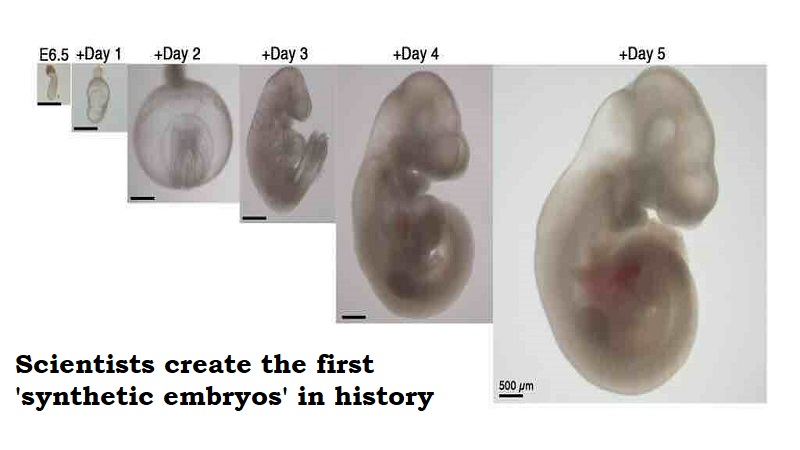
In a historic accomplishment, researchers created the first ‘synthetic embryos’ without the use of sperm, eggs, or fertilisation. The ability to get mouse stem cells to self-assemble into structures resembling early embryos with a digestive tract, a developing brain, and a beating heart was found by scientists at the Weizmann Institute in Israel.
In the near future, it is predicted that the live constructs, sometimes known as synthetic embryos because they are created without fertilised eggs, will increase our knowledge of how organs and tissues develop throughout the formation of natural embryos.
Researchers believe that the discovery could eventually lead to new sources of cells and tissues for use in human transplants, as well as a reduction in the use of animals in research. For instance, skin cells from a leukaemia patient may be transformed into bone marrow stem cells to treat their condition.
The same team revealed how they had developed an artificial womb the previous year that allowed genuine mouse embryos to grow for a few days outside the uterus. The same equipment was used in the most recent study to cultivate mouse stem cells for more than a week—nearly half the time a mouse would be pregnant.
Other cells normally underwent organ and other tissue development, while some cells underwent chemical pretreatment to activate genetic programmes that would cause them to develop into the placenta or yolk sac. 0.5 percent of stem cells merged to form tiny balls that gave rise to distinct tissues and organs, whereas the bulk of stem cells failed to grow into structures resembling embryos. The synthetic mouse embryos were 95% equivalent to real mouse embryos in terms of internal structure and cell genetic profiles. The usefulness of the emerging organs was apparent to the scientists.
Making ‘synthetic’ human embryos is not covered by the UK’s Human Fertilization and Embryology Act, but because they are not regarded as ‘permitted embryos,’ using them to make a woman pregnant would be against the law.

Post Your Comments